The Israeli Peace Process. 7 Books, including Doomed to Succeed & An Improbable Friendship
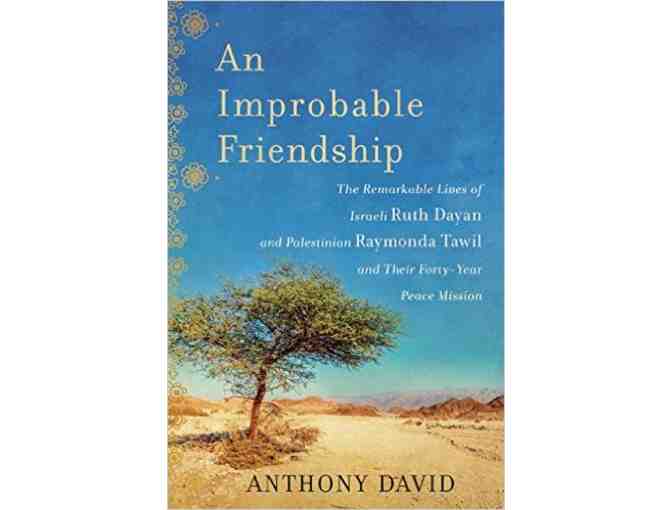
Item Number: 212
Time Left: CLOSED
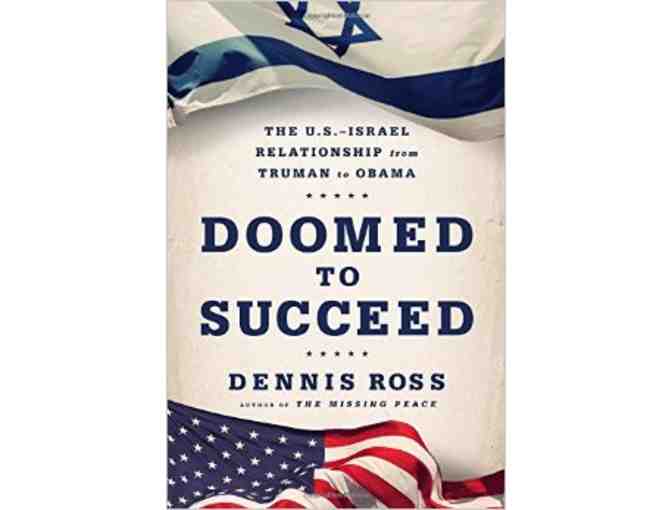
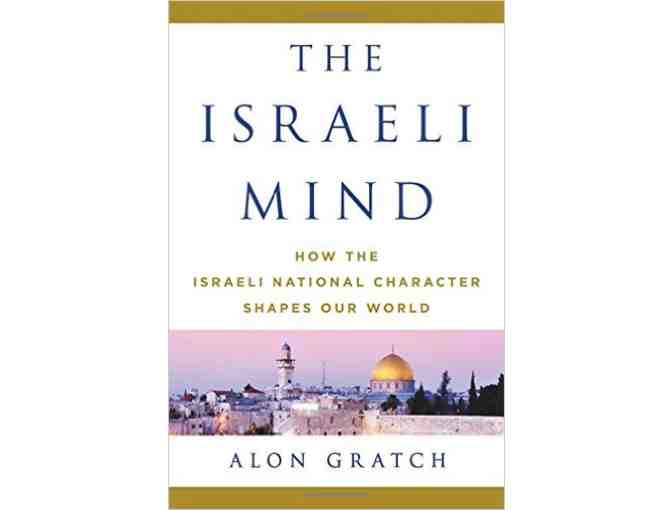
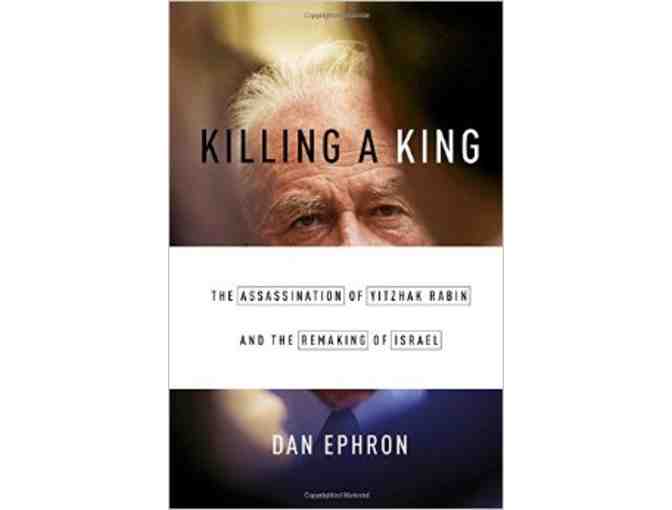

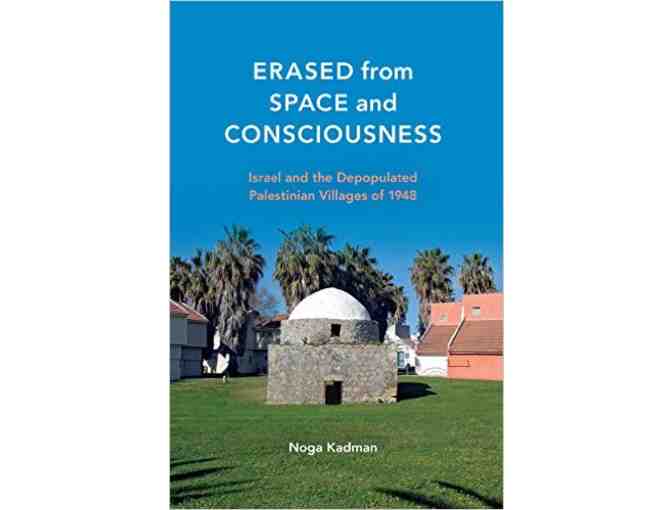

Description
An Improbable Friendship: The Remarkable Lives of Israeli Ruth Dayan and Palestinian Raymonda Tawil and Their Forty-Year Peace Mission, by Anthony David.
An Improbable Friendship is the dual biography of Israeli Ruth Dayan, now ninety-eight, who was Moshe Dayan’s wife for thirty-seven years, and Palestinian journalist Raymonda Tawil, Yasser Arafat’s mother-in-law, now seventy-four. It reveals for the first time the two women’s surprising and secret forty-year friendship and delivers the story of their extraordinary and turbulent lives growing up in a war-torn country.
(Read the Lilith review and see what Ruth Dayan and Raymonda Tawil told Lilith.)
Based on personal interviews, diaries, and journals drawn from both women—Ruth lives today in Tel Aviv, Raymonda in Malta—author Anthony David delivers a fast-paced, fascinating narrative that is a beautiful story of reconciliation and hope in a climate of endless conflict. By experiencing their stories and following their budding relationship, which began after the Six-Day War in 1967, we learn the behind-the-scenes, undisclosed history of the Middle East’s most influential leaders from two prominent women on either side of the ongoing conflict.
An award-winning biographer and historian, Anthony David brings us the story of unexpected friendship while he discovers the true pasts of two outstanding women. Their story gives voice to Israelis and Palestinians caught in the Middle East conflict and holds a persistent faith in a future of peace.
Doomed to Succeed: The U.S.-Israel Relationship from Truman to Obama, by Dennis Ross.
A necessary and unprecedented account of America's changing relationship with Israel.
When it comes to Israel, U.S. policy has always emphasized the unbreakable bond between the two countries and our ironclad commitment to Israel's security. Today our ties to Israel are close--so close that when there are differences, they tend to make the news. But it was not always this way.
Dennis Ross has been a direct participant in shaping U.S. policy toward the Middle East, and Israel specifically, for nearly thirty years. He served in senior roles, including as Bill Clinton's envoy for Arab-Israeli peace, and was an active player in the debates over how Israel fit into the region and what should guide our policies. In Doomed to Succeed, he takes us through every administration from Truman to Obama, throwing into dramatic relief each president's attitudes toward Israel and the region, the often tumultuous debates between key advisers, and the events that drove the policies and at times led to a shift in approach.
Ross points out how rarely lessons were learned and how distancing the United States from Israel in the Eisenhower, Nixon, Bush, and Obama administrations never yielded any benefits and why that lesson has never been learned. Doomed to Succeed offers compelling advice for how to understand the priorities of Arab leaders and how future administrations might best shape U.S. policy in that light.
From Enemy to Friend: Jewish Wisdom and the Pursuit of Peace, by Rabby Amy Eilberg.
From Enemy to Friend blends ancient Jewish sacred texts on peacebuilding, real-life descriptions of conflict engagement--interpersonal, interreligious, intra-communal, and international--and contemporary conflict theory. The interweaving of personal story, sacred text, and theory demonstrates how relationships can move from estrangement and wounding, entrenched bigotry and fear, to positive, engaged encounter. What emerges is a portrait of peacemaking as a spiritual practice that can guide the lives of faithful people seeking peace in their lives and in the world. After exploring this theme in the contexts of interreligious dialogue, struggle within the Jewish community itself, and the Israeli-Palestinian conflict, the book concludes with practical disciplines to cultivate the qualities of soul essential to the art of pursuing peace.
Arab and Jew: Wounded Spirits in a Promised Land, by David K. Shipler.
The expanded and updated edition of David Shipler's Pulitzer Prize-winning book that examines the relationship, past and present, between Arabs and Jews.
In this monumental work, extensively researched and more relevant than ever, David Shipler delves into the origins of the prejudices that exist between Jews and Arabs that have been intensified by war, terrorism, and nationalism.
Focusing on the diverse cultures that exist side by side in Israel and Israeli-controlled territories, Shipler examines the process of indoctrination that begins in schools; he discusses the far-ranging effects of socioeconomic differences, historical conflicts between Islam and Judaism, attitudes about the Holocaust, and much more. And he writes of the people: the Arab woman in love with a Jew, the retired Israeli military officer, the Palestinian guerrilla, the handsome actor whose father is Arab and whose mother is Jewish.
For Shipler, and for all who read this book, their stories and hundreds of others reflect not only the reality of "wounded spirits" but also a glimmer of hope for eventual coexistence in the Promised Land.
The Israeli Mind: How the Israeli National Character Shapes Our World, by Alon Gratch.
Israelis are bold and visionary, passionate and generous. But they can also be grandiose and self-absorbed. Emerging from the depths of Jewish history and the drama of the Zionist rebellion against it, they have a deeply conflicted identity. They are willing to sacrifice themselves for the collective, but also to sacrifice that very collective for a higher, and likely unattainable, ideal. Resolving these internal conflicts and coming to terms with the trauma of the Holocaust are imperative to Israel's survival as a nation and to the stability of the world.
Alon Gratch, a clinical psychologist whose family has lived in Israel for generations, is uniquely positioned to confront these issues. Like the Israeli psyche that Gratch details, The Israeli Mind is both intimate and universal. Intelligent and forthright, compassionate but sometimes maddening, it is an utterly compelling read. Drawing on a broad cultural and historical canvas, and weaving in the author's personal and professional experience, The Israeli Mind presents a provocative, first-hand portrait of the Israeli national character.
Erased from Space and Consciousness: Israel and the Depopulated Palestinian Villages of 1948, by Noga Kadman.
Hundreds of Palestinian villages were left empty across Israel when their residents became refugees after the 1948 war, their lands and property confiscated. Most of the villages were razed by the new State of Israel, but in dozens of others, communities of Jews were settled—many refugees in their own right. The state embarked on a systematic effort of renaming and remaking the landscape, and the Arab presence was all but erased from official maps and histories. Israelis are familiar with the ruins, terraces, and orchards that mark these sites today—almost half are located within tourist areas or national parks—but public descriptions rarely acknowledge that Arab communities existed there within living memory or describe how they came to be depopulated. Using official archives, kibbutz publications, and visits to the former village sites, Noga Kadman has reconstructed this history of erasure for all 418 depopulated villages.
Killing a King: The Assassination of Yitzhak Rabin and the Remaking of Israel, by Dan Ephron.
A riveting story about the murder that changed a nation: the assassination of Israeli Prime Minister Yitzhak Rabin.
The assassination of Israeli Prime Minister Yitzhak Rabin remains the single most consequential event in Israel’s recent history, and one that fundamentally altered the trajectory for both Israel and the Palestinians. Killing a King relates the parallel stories of Rabin and his stalker, Yigal Amir, over the two years leading up to the assassination, as one of them planned political deals he hoped would lead to peace, and the other plotted murder.
Dan Ephron, who reported from the Middle East for much of the past two decades, covered both the rally where Rabin was killed and the subsequent murder trial. He describes how Rabin, a former general who led the army in the Six-Day War of 1967, embraced his nemesis, Palestine Liberation Organization leader Yasser Arafat, and set about trying to resolve the twentieth century’s most vexing conflict. He recounts in agonizing detail how extremists on both sides undermined the peace process with ghastly violence. And he reconstructs the relentless scheming of Amir, a twenty-five-year-old law student and Jewish extremist who believed that Rabin’s peace effort amounted to a betrayal of Israel and the Jewish people. As Amir stalked Rabin over many months, the agency charged with safeguarding the Israeli leader missed key clues, overlooked intelligence reports, and then failed to protect him at the critical moment, exactly twenty years ago. It was the biggest security blunder in the agency’s history.
Through the prism of the assassination, much about Israel today comes into focus, from the paralysis in peacemaking to the fraught relationship between current Prime Minister Benjamin Netanyahu and President Barack Obama. Based on Israeli police reports, interviews, confessions, and the cooperation of both Rabin’s and Amir’s families, Killing a King is a tightly coiled narrative that reaches an inevitable, shattering conclusion. One can’t help but wonder what Israel would look like today had Rabin lived.
Special Instructions
A $7.50 charge will be added for shipping and handling to any USA address. Inquire about shipping outside the USA.